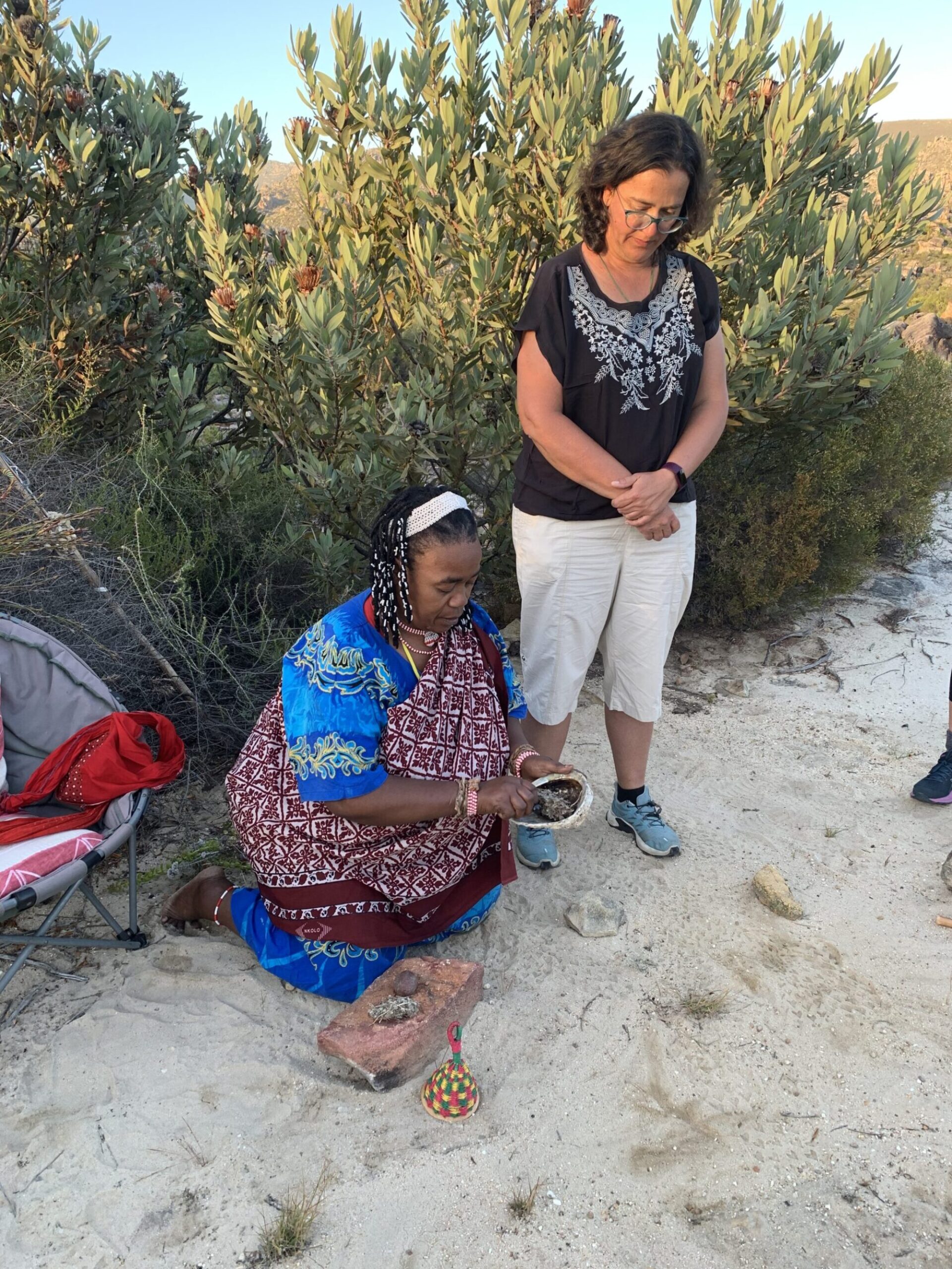Social Worker
Diviner/Igqirha
I am a professional Social Worker, I am dedicated to helping individuals, families, and communities overcome challenges and achieve their goals. I work in a variety of settings, including hospitals, schools, government agencies, and non-profit organizations.
I am trained to assess the needs of my clients and develop strategies to address them. I provide counseling, advocacy, and support services to individuals and families facing a wide range of issues, such as poverty, domestic violence, substance abuse, mental illness, and disability.
I possess strong communication and interpersonal skills, as I often work with people who are in crisis or facing difficult situations. I am also able to work collaboratively with other professionals, such as doctors, lawyers, and educators, to provide holistic care to their clients.
In addition to providing direct services to clients, I also play an important role in shaping public policy and advocating for social justice. I also work to improve access to healthcare, housing, and education, and to promote equality and human rights.
Overall, as a social workers I am compassionate and dedicated professional and I work tirelessly to improve the lives of those I serve. My work is essential in creating a more just and equitable society for all.
As a diviner I am a professional who uses my intuitive and spiritual abilities to provide guidance and insight into a person’s life. I use a variety of tools and techniques, such as tarot cards, throwing of bones, or meditation and going into trance, to connect with my clients ancestors and gain insight into their needs and desires.
As a diviner I have intuitive gift and I dedicate my life to helping others find meaning and purpose in their lives. From a young age, I have been aware of my spiritual gifts, and have spent years honing my abilities and developing my craft.
As a diviner, I works with clients from all walk of life, providing guidance and support on a wide range of issues, including relationships, career, and personal growth. I am known for my compassionate and non-judgmental approach, and create a safe and supportive space for my clients to explore their deepest desires and fears.
In addition to my work as a diviner, I am also a teacher and mentor, I share my knowledge and wisdom with others who are interested in developing their own intuitive and spiritual abilities. I am passionate about helping others discover their true potential and live more fulfilling and authentic lives.
Overall, I am a gifted and compassionate diviner who has touched the lives of countless people with my wisdom and insight. My commitment to helping others find meaning and purpose in their lives has made me a respected figure in my community, and my legacy of service will undoubtedly continue to inspire generations to come.
The link between a social worker and a diviner:
Is that both professions are focused on helping individuals and communities overcome challenges and achieve their goals. While social workers use evidence-based practices to provide counseling, advocacy, and support services, diviners use their intuitive and spiritual abilities to provide guidance and insight into a person’s life.
Both social workers and diviners are committed to improving the lives of those they serve, and they often work with people who are facing difficult situations or crises. Social workers may help individuals and families navigate complex systems and access resources, while diviners may offer spiritual guidance and support to help people find meaning and purpose in their lives.
In some cases, social workers and diviners may work together to provide more holistic care to their clients. For example, a social worker may refer a client to a diviner for spiritual guidance, while a diviner may refer a client to a social worker for practical support and resources.
Overall, the link between a social worker and a diviner is their shared commitment to helping people live fulfilling and meaningful lives. While their approaches may differ, both professions play an important role in supporting individuals and communities in need.
Afrocentric Meditation
Afrocentric Meditation is a transformative practice that harmoniously combines the wisdom of African indigenous spirituality with the contemporary techniques of meditation. It represents a unique blend of ancient African traditions and modern mindfulness, offering practitioners a path to connect with their African roots, find inner peace, and promote holistic well-being.
Key Elements of Afrocentric Meditation:
Ancestral Connection: Afrocentric Meditation places a strong emphasis on connecting with one’s African ancestry. Practitioners often start by researching their heritage, learning about their ancestors, and acknowledging the spiritual significance of their lineage. This connection helps ground the meditation practice in a rich cultural context.
Nature and Elements: African spirituality has deep ties to the natural world and the elements. Afrocentric Meditation often takes place outdoors, allowing participants to commune with nature. Elements such as water, earth, fire, and air are incorporated into the practice, symbolizing the interconnectedness of all living things.
Drumming and Rhythm: Traditional African drumming and rhythmic patterns play a central role in Afrocentric Meditation. The rhythmic beats of drums create an entrancing and meditative atmosphere, helping participants enter a state of deep relaxation and focus.
Visualization and Storytelling: Afrocentric Meditation often incorporates guided visualizations and storytelling, drawing inspiration from African myths, legends, and folklore. These narratives guide practitioners on journeys through their own minds, offering insights and healing along the way.
Sacred Symbols and Artifacts: Symbols and artifacts from African cultures are integrated into the meditation experience. These can include Adinkra symbols, masks, or other sacred items that hold cultural and spiritual significance. They serve as focal points for contemplation and reflection.
Breathwork and Mindfulness: Like modern meditation practices, Afrocentric Meditation places importance on mindful breathing techniques. Deep, intentional breaths help calm the mind and body, allowing practitioners to be fully present in the moment.
Benefits of Afrocentric Meditation:
Cultural Reconnection: Afrocentric Meditation offers a powerful means of reconnecting with African heritage, fostering a sense of identity, belonging, and pride.
Stress Reduction: The combination of rhythmic drumming, mindfulness, and nature immersion can significantly reduce stress and promote relaxation.
Spiritual Growth: Practitioners often report a deeper sense of spirituality and connection to the universe through this practice.
Healing and Self-Discovery: Guided visualizations and storytelling can lead to profound self-discovery and emotional healing.
Community and Unity: Afrocentric Meditation can also serve as a communal activity, bringing people together to share in their cultural heritage and promote unity within the community.
In conclusion, Afrocentric Meditation is a holistic practice that merges the ancient wisdom of African indigenous spirituality with the contemporary benefits of meditation. It provides a unique opportunity for individuals to reconnect with their roots, find inner peace, and embark on a journey of self-discovery. By embracing this practice, individuals can experience a harmonious blend of tradition and modernity, fostering both personal and cultural growth.

